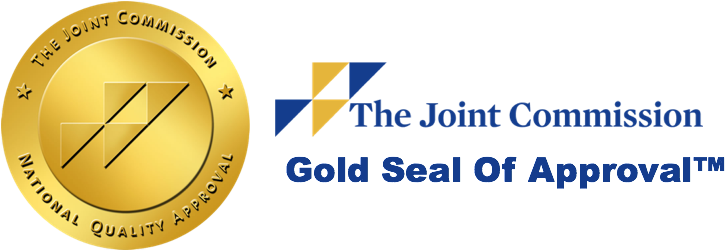Many people can stop drinking alcohol whenever they wish and not feel any negative effects from it. This is not the case for people who heavily use alcohol and/or have alcohol use disorder (AUD). For these individuals, quitting drinking can be very difficult and uncomfortable. It can also be very dangerous, which is why one should never consider quitting drinking cold turkey.
What Exactly Are Alcohol Withdrawals?
Alcohol withdrawals are the symptoms experienced when someone stops ingesting alcohol, specifically, those who have been using alcohol heavily. As stated in Acta Neurologica Scandinavica, “An estimated 76.3 million people worldwide have alcohol use disorders (AUDs), and these account for 1.8 million deaths each year. It is estimated that up to 42% of patients admitted to general hospitals, and one‐third of patients admitted to hospital intensive care units (ICU) have AUD. Alcohol withdrawal syndrome (AWS) is a well‐known condition occurring after intentional or unintentional abrupt cessation of heavy/constant drinking, and it occurs in about 8% of hospitalized AUD inpatients.”
Also, alcohol withdrawals can be very uncomfortable. Some of the symptoms of alcohol withdrawal are as follows:
- Extreme dehydration
- Intense long-lasting headaches
- Feeling disoriented
- Severe vitamin, mineral, and antioxidant deficiencies
- Intense feelings of anxiety and depression
- Gastrointestinal problems, including nausea, diarrhea, and vomiting
- Raised blood pressure
- The potential for seizure, stroke, or heart attack
- Visual and audible hallucinations
- Feelings of self-harm and/or suicide
As one can see, some of these symptoms are very severe, as they can be deadly. Also, they become exponentially more likely if one is quitting drinking cold turkey.
What Does Quitting Alcohol Cold Turkey Mean?
Quitting alcohol cold turkey means stopping drinking suddenly, completely, and resolutely. As previously mentioned, this is hardly an issue for many people, but for others, it can be very shocking to the system both physically and emotionally.
Quitting drinking cold turkey also often means that an individual is quitting drinking on their own. This can be very dangerous, as people with severe alcohol dependence may need to slowly reduce their alcohol intake to ensure that they don’t do any serious physical damage to their body.
What Are the Dangers of Quitting Alcohol Cold Turkey?
There is a very specific timeline when it comes to alcohol withdrawal. According to the publication Alcohol Withdrawal by authors Newman, Gallagher, and Gomez, “Alcohol withdrawal can range from very mild symptoms to a severe form, which is named delirium tremens… If symptoms do not progress to more severe symptoms within 24 to 48 hours, the patient will likely recover. However, the time to presentation and range of symptoms can vary greatly depending on the patient, their duration of alcohol dependence, and the volume typically ingested.”
The issue with quitting drinking cold turkey is after the initial 48 hours, one may be too sick to get the attention they need. Thus, getting into a professional detox as soon as possible (even if serious symptoms aren’t presenting right away) can be critical.
The Benefits of Reaching Out to Professionals Before Quitting Drinking Cold Turkey?
Reaching out to medically trained professionals is the best option when someone is unsure as to whether they are in danger of alcohol withdrawal syndrome. Most likely a professional will advise an individual to detox in a clinical setting just to be sure that no serious side effects or complications occur during the process.
Detoxing in a professional setting can ensure that not only the dangers of quitting alcohol cold turkey are minimized but also that an individual is connected to the next step of the recovery process as soon as the detox is concluded. This is crucial if one is to avoid a relapse and attain long-term recovery.
Utilizing Professional Detox to Best Ensure Long-Term Recovery
The ultimate goal of detox should not be simply to stop drinking in the short term; rather, it should be to achieve a recovery that ensures that another detox process does not have to happen again. This is why detox professionals often set up a long-term treatment and recovery plan for a client undergoing detox.
Many detoxes even take place directly at a treatment center. For detox programs that take place elsewhere, programs are likely connected to a specific treatment center to take over the next part of the recovery journey. This may include an inpatient program, a partial hospitalization program (PHP), or an intensive outpatient program (IOP), all of which may be essential for ultimately achieving long-term sobriety and recovery.
Taking Our Responsibility Seriously at The Phoenix Recovery Center
In many 12-Step meetings, a statement is read called the “Responsibility Statement.” It goes, “I am responsible, when anyone, anywhere reaches out for help, I want the hand of [recovery] always to be there. And for that: I am responsible.” We also take this responsibility very seriously at The Phoenix Recovery Center.
For anyone struggling with issues of mental illness or addiction, our primary purpose is to help them recover by any means necessary. Yes, for that, we are responsible.
Quitting alcohol “cold turkey” is much more dangerous than many people realize. It is also much more uncomfortable than going through a medically supervised detox. A medically supervised detox will ensure that the process is as safe and as comfortable as possible. If you feel like you or a loved one may be struggling with issues of addiction, mental illness, or both, we can help you get the potential detox and following treatment that you may need. For more information about the very real dangers of quitting alcohol cold turkey, alcohol withdrawal, and why avoiding doing so is the “easier, softer way,” please reach out to The Phoenix Recovery Center today at (801) 438-3185.







